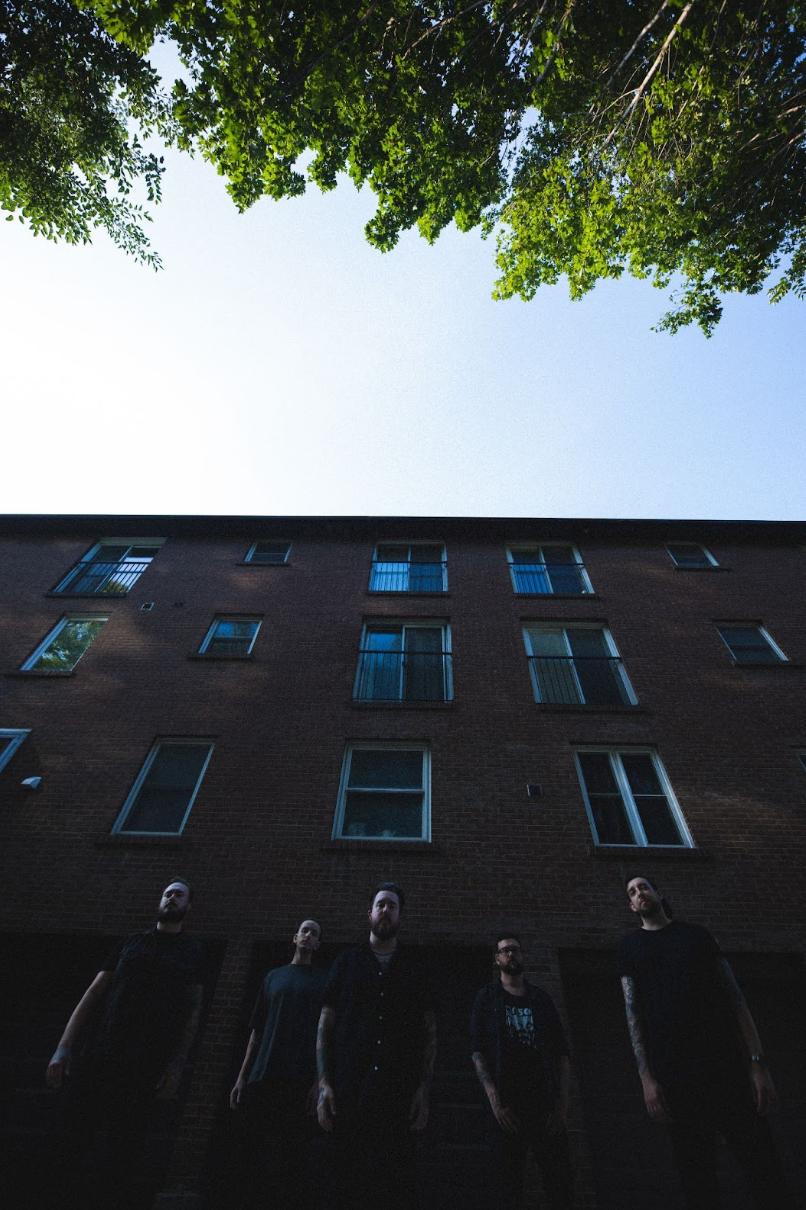Ritual Decay, the flooring debut full-length from Toronto-based post-metal conjurors lowheaven , is out today on MNRK Heavy!
Ritual Decay serves as lowheaven ’s visceral entry into the world, ripping straight through the wall of noise and into open ears. Pulling heavily from ‘90s influences like Cave In and Deftones, the record feels nostalgic in nature delivering ten tracks that explore the reality of complete social isolation and the acceptance of what it means to lose faith in life and yourself with technical prowess.
Of the band’s first single, “Chemical Pattern,” Kerrang championed, "smothering pop sensibilities in wailing noise and thundering riffs,” adding “it’s a glorious introduction to the band,” while New Noise lauded, “a barrage of barely contained chaos; the song explodes in a cacophony that leaves you stunned like a punch in the face.”
Of their follow-up single, "Mercy Death,” MetalSucks celebrated a, “...more prog metal, post-hardcore offering. 'Mercy Death' has a fuzzy electronic-induced undertone to it, and its vocals present as distorted, yearning echoes."
Snaggletooth Rock ‘N’ Roll hails a record that “balances melodic tension with throat-ripping fury, triple-guitar chaos, and enough mood swings to scare your therapist,” while Everything Is Noise elaborates eloquently, " lowheaven put foot to ass for Ritual Decay, their first LP and strongest statement of intent yet as they howl at various voids that plague us all... For ten tracks, they want you to wallow and mope, contort and drag your hands across your face just as they did while producing them under tense and deprived circumstances. It’s hard to call an album like this fun, but when it sounds this nice and well-constructed, the contradiction is part of the point because if you have to feel bad, you might as well have a great mirror of a soundtrack to accompany it. This LP’s bold and unapologetic with how it feels, scraping together what sense of goodness and decency in presentation it can to remind us that at the end of the day, this is art and it’s meant to reflect what and who we are."
Ritual Decaywas produced by Brett Romnes (Boston Manor, Hot Mulligan) and mastered by Mangus Lindberg.
Formed in the Spring of 2020, beneath the dark clouds of the COVID-19 pandemic and stay-at-home orders, lowheavenis Dan Thomson (vocals/guitar), Mikey Buchta (vocals/bass), Alex Pley (guitar/keys), and Pat Pajak (guitar). Their sound oscillates somewhere between post-hardcore, screamo, blackened noise, and metal. They’re not quite genreless, rather, a band that blends genres so thoroughly that they are better characterized by their distinctive emotional intensity than by any one label. Thomson, formerly of Canadian post-hardcore band Sparrows, explains candidly, “We’re not a happy listen. lowheavenis something that has got a lot of weight.”
Following the dissolution of his previous band and the mandated COVID-19 isolation, the very foundations of Thomson’s identity crumbled. Several unfortunate medical diagnoses led to a great deal of change, many of which would alter his life forever.
Similarly, each of the bandmates experienced a great deal of grief at the start of 2020, whether that be the sudden loss of relationships or dramatic changes in circumstance. The culmination of these seismic shocks were five full notebooks of lyrics grappling the line between self-hatred and forgiveness. In an effort to maintain this elevated emotional state, Romnes had the band record both Ritual Decay and lowheaven’s debut EP, Collapse,in a centuries old New Jersey church. Romnes’ intensity allowed the band to retap into their darkest emotions. According to the band, “everything that could be done to bring out performances or emotions was immediately on the table.” This meant watching David Cronenberg and various other horror films at all hours of the day on a television in the church. Specifically, the brutal and psychological nature of films like Cronenberg’s Crimes Of The Future and Julia Docournau’s Titanenot only helped to set the tone for the recording process, but also to directly influence the final versions of the songs themselves. Many nights, the band members were only sleeping four or five hours and channeling this exhaustion into the hopelessness of the music.


